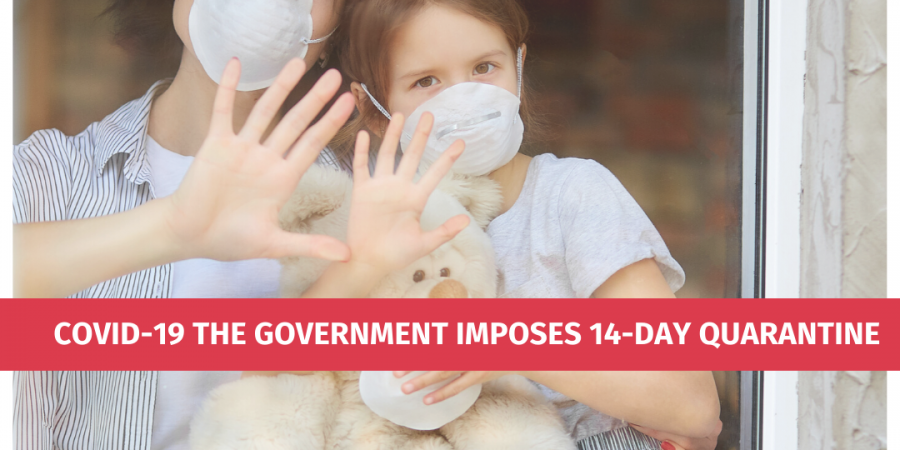
COVID-19 Update: Are you planning to enter or return to the UK?
1) If you’re a resident or visitor travelling to the UK.
When you arrive in the UK, you will not be allowed to leave the place you’re staying for the first 14 days you’re in the UK (known as ‘self-isolating’). This is because it can take up to 14 days for coronavirus symptoms to appear. You must:
- • provide your journey and contact details (more info: here)
- • not leave the place you’re staying for the first 14 days you’re in the UK except in very limited situations (known as ‘self-isolating’).
There are different self-isolation rules and penalties* depending on whether you are travelling to England, Scotland, Wales, Northern Ireland.
*You may be fined up to £100 if you refuse to provide your contact details.
You may be fined more if you break this rule more than once.
You may also be fined up to £1,000 if you refuse to self-isolate, or you could face further action.
2) Who must self-isolate and who does not need to provide their details or self-isolate for 14 days?
These rules are for UK residents and all visitors coming into the UK. You will not need to self-isolate for 14 days if you’re travelling to the UK from within the Common Travel Area, that is: the UK, the Republic of Ireland, the Channel Islands, the Isle of Man.
However, if you arrive in the UK and have been outside the Common Travel Area within the last 14 days, then you will need to self-isolate for the remainder of the 14-day period, starting from when you arrived in the Common Travel Area.
You will also need to complete a public health passenger locator form if you are travelling from the Republic of Ireland, the Channel Islands and the Isle of Man and have been outside the Common Travel Area in the last 14 days.
There are other reasons why you might not need to self-isolate. Read the detailed guidance on who does not need to self-isolate.
If you are exempt, you will still need to stay alert and stay safe.
If you are travelling to the UK for less than 14 days, you will be expected to self-isolate for the length of your stay.
There are other reasons why you might not need to complete the form or self-isolate. Read the list of who does not need to complete the form or self-isolate.
3) How to self-isolate in your accommodation?
You should self-isolate in one place for the full 14 days, where you can have food and other necessities delivered, and stay away from others. You must self-isolate at the address you provided on the public health passenger locator form. This can include:
- • your own home
- • staying with friends or family
- • a hotel or other temporary accommodation
You should not have visitors, including friends and family, unless they are providing essential care. The only friends and family who you can have contact with are those who travelled with you or people who you are staying with.
You cannot go out to work or school or visit public areas. You should not go shopping. If you require help buying groceries, other shopping or picking up medication, you should ask friends or relatives or order a delivery.
In England, you must only exercise within your home or garden. You cannot leave your home to walk your dog. You will need to ask friends or relatives to help you with this.
In England, you can only leave your accommodation in limited circumstances. These include where: link. You are not allowed to change the place where you are self-isolating except in very limited circumstances, including where: link.
4) What about people you’re staying with?
The people you’re staying with do not need to self-isolate, unless they travelled with you or you develop the symptoms of coronavirus. Avoid contact with them and minimise the time you spend in shared spaces, like kitchens, bathrooms and sitting areas. If you’re staying in a hotel or guest house, you must stay away from others who didn’t travel with you, so it’s important that you don’t use shared areas such as bars, restaurants, health clubs and sports facilities. It is important to avoid contact with other people in your home in order to reduce the risk of transmitting coronavirus. You should stay in a well-ventilated room with a window to the outside that can be opened, separate from other people in your home.
5) What to do after self-isolating for 14 days?
If you do not have any coronavirus symptoms after 14 days, you can stop self-isolating. If you get coronavirus symptoms, the whole household that you are staying with will need to begin self-isolating. You should then register for a test on the NHS website.
Source: gov.uk
The video: Home Secretary Priti Patel has announced anyone arriving in the UK by air, sea or rail must self-isolate for two weeks.
PBIC offers free support! If you have any questions you can contact the PBIC team on 01234 328100 or e-mail us at info@pbic.org.uk Monday to Friday between 9.30 am to 3 pm.
If you need advice URGENTLY, we have launched an additional PBIC helpline 01234 331817. The helpline will be open on Monday, Thursday and Friday between 9.30 am – 3 pm.